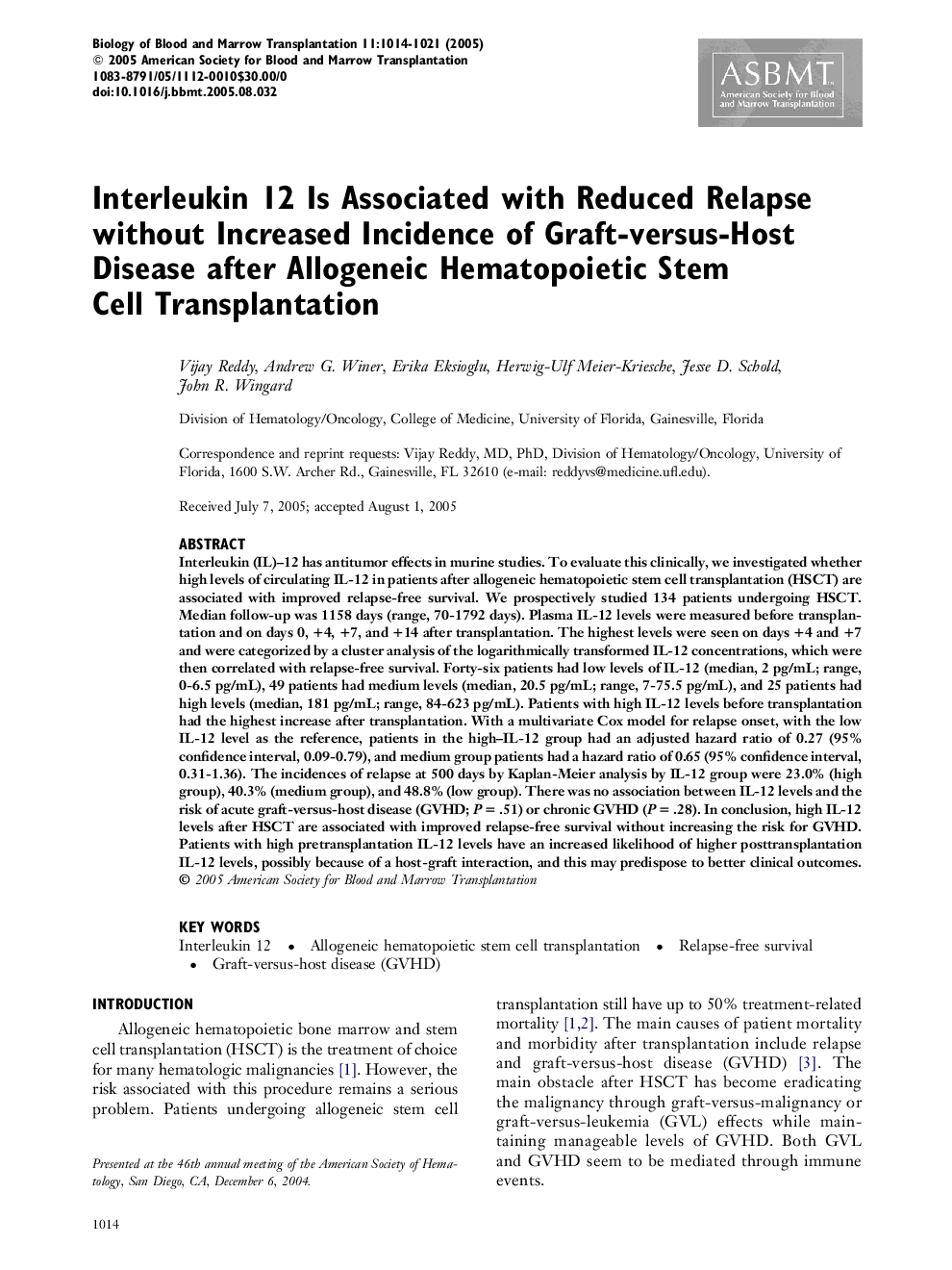| Article ID | Journal | Published Year | Pages | File Type |
|---|---|---|---|---|
| 9904088 | Biology of Blood and Marrow Transplantation | 2005 | 8 Pages |
Abstract
Interleukin (IL)-12 has antitumor effects in murine studies. To evaluate this clinically, we investigated whether high levels of circulating IL-12 in patients after allogeneic hematopoietic stem cell transplantation (HSCT) are associated with improved relapse-free survival. We prospectively studied 134 patients undergoing HSCT. Median follow-up was 1158 days (range, 70-1792 days). Plasma IL-12 levels were measured before transplantation and on days 0, +4, +7, and +14 after transplantation. The highest levels were seen on days +4 and +7 and were categorized by a cluster analysis of the logarithmically transformed IL-12 concentrations, which were then correlated with relapse-free survival. Forty-six patients had low levels of IL-12 (median, 2 pg/mL; range, 0-6.5 pg/mL), 49 patients had medium levels (median, 20.5 pg/mL; range, 7-75.5 pg/mL), and 25 patients had high levels (median, 181 pg/mL; range, 84-623 pg/mL). Patients with high IL-12 levels before transplantation had the highest increase after transplantation. With a multivariate Cox model for relapse onset, with the low IL-12 level as the reference, patients in the high-IL-12 group had an adjusted hazard ratio of 0.27 (95% confidence interval, 0.09-0.79), and medium group patients had a hazard ratio of 0.65 (95% confidence interval, 0.31-1.36). The incidences of relapse at 500 days by Kaplan-Meier analysis by IL-12 group were 23.0% (high group), 40.3% (medium group), and 48.8% (low group). There was no association between IL-12 levels and the risk of acute graft-versus-host disease (GVHD; P = .51) or chronic GVHD (P = .28). In conclusion, high IL-12 levels after HSCT are associated with improved relapse-free survival without increasing the risk for GVHD. Patients with high pretransplantation IL-12 levels have an increased likelihood of higher posttransplantation IL-12 levels, possibly because of a host-graft interaction, and this may predispose to better clinical outcomes.
Keywords
Related Topics
Life Sciences
Biochemistry, Genetics and Molecular Biology
Cancer Research
Authors
Vijay Reddy, Andrew G. Winer, Erika Eksioglu, Herwig-Ulf Meier-Kriesche, Jesse D. Schold, John R. Wingard,
